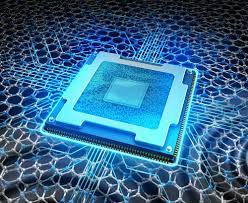Nanotechnology in Electronics: The Future of Computing

About Course
In the world of ever-shrinking devices and ever-growing demands for performance, nanotechnology is revolutionizing the electronics industry. This course delves into how materials and devices at the nanoscale are pushing the boundaries of what’s possible in computing. From nanoscale transistors to molecular electronics and quantum computing, students will uncover how manipulating matter at the atomic level is creating the next generation of ultra-fast, energy-efficient, and intelligent devices.
Whether you’re fascinated by the science behind cutting-edge electronics or want to explore real-world applications in medicine, energy, or AI, this course offers a comprehensive look at the rapidly evolving field of nanotechnology in electronics. With a blend of theory, case studies, and future insights, students will emerge with a firm grasp of how tiny innovations are shaping our digital future—and their potential role in driving it forward.
Course Content
Introduction
Explanation of nanotechnology and its applications in electronics
00:00Brief history of nanotechnology in electronics
00:00Importance of nanotechnology in the future of computing
00:00